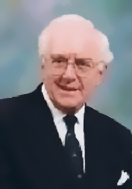The 20 or so years that followed the opening of St Christopher's Hospice in London in 1967 saw hospice and palliative care services being
established all over the UK, four fifths of them voluntary (not for profit), the rest operated by the National Health Service NHS). By 1987 palliative medicine had been recognised as a medical
specialty and palliative care nursing as a nursing specialty, and the subjects were, to a greater or lesser extent, being taught in most medical and nursing schools and colleges.
Soon there were professional associations representing, and addressing the needs of, the physicians, nurses, nurse tutors, nurse managers, administrators,
pastoral care workers, social workers, physiotherapists and many other disciplines and even the trustees of the independent, non-NHS services. Each looked at contracts, terms and conditions of
service, remuneration, education and training, research, attracting recruits into this work, integrating with main-stream health care and their image and profile.
Government, both local and national, found itself bombarded with calls for funding, for closer collaboration, and for recognition and respect
for the contribution of palliative care. In its turn, government asked for more reliable data, evidence of needs assessment, rigorous standard setting and high-quality audit of everything done
in palliative care services. Palliative care workers worldwide will recognise the problem as one they too have faced. It became obvious that a new body was urgently needed - one that would
bring together palliative care providers (represented by the professional associations and regional representatives), the major national cancer charities, and the government itself. So was formed,
in 1991, the National Council for Hospice and Specialist Palliative Care Services, initially funded by a multinational company - British Gas, with its Chairman the first chairman of Council
- and staffed by an Executive Director and a very small but dedicated staff.
The benefits began to be seen almost immediately. Communications with government were much facilitated, and government observers on Council and
its sub-committees and working parties could ensure that national policy was understood by palliative care providers, and palliative care be better understood and appreciated by politicians and
health planners. Soon Council began to publish a notable series of reports and recommendations on such aspects of palliative care as definitions, ethical issues, needs assessment, the care of patients
with non-malignant conditions, minimum data sets, clinical guideline, outcome measures, care in the final days of life, clinical governance for voluntary services, cardio-pulmonary resuscitation,
commissioning and provision of palliative care, cost analysis and much else.
Perhaps one of the most innovative and useful creations of Council, but one few people have heard of, is the All Party Parliamentary Palliative
Care Group. Recognising that members of parliament (MPs) needed to know as much as possible about palliative care and where it fitted into the spectrum of health care provision, Council, in cooperation
with a few MPs who already recognised the importance of our work, invited fellow MPs to join them in meeting for an hour or so every few months to hear more about hospice and palliative care issues
(in the UK and worldwide). The response was most encouraging and this model of involving and informing politicians has now been copied in several countries.
There is little doubt that the steady development of palliative care in the UK is part due to Council. It has no executive powers but considerable
influence. It does not threaten any individual or service but strives to ensure that all work together and speak with one voice. No longer is palliative care a 'Cinderella' discipline in British
health care.
Readers might find it interesting to look at Council's website www.hospice-spc-council.org.uk
or to get a list of its publications from [email protected]. Though the focus of its work is the UK, many of the
publications have international relevance and can be highly recommended.
Dr. Derek Doyle
(Scotland)





